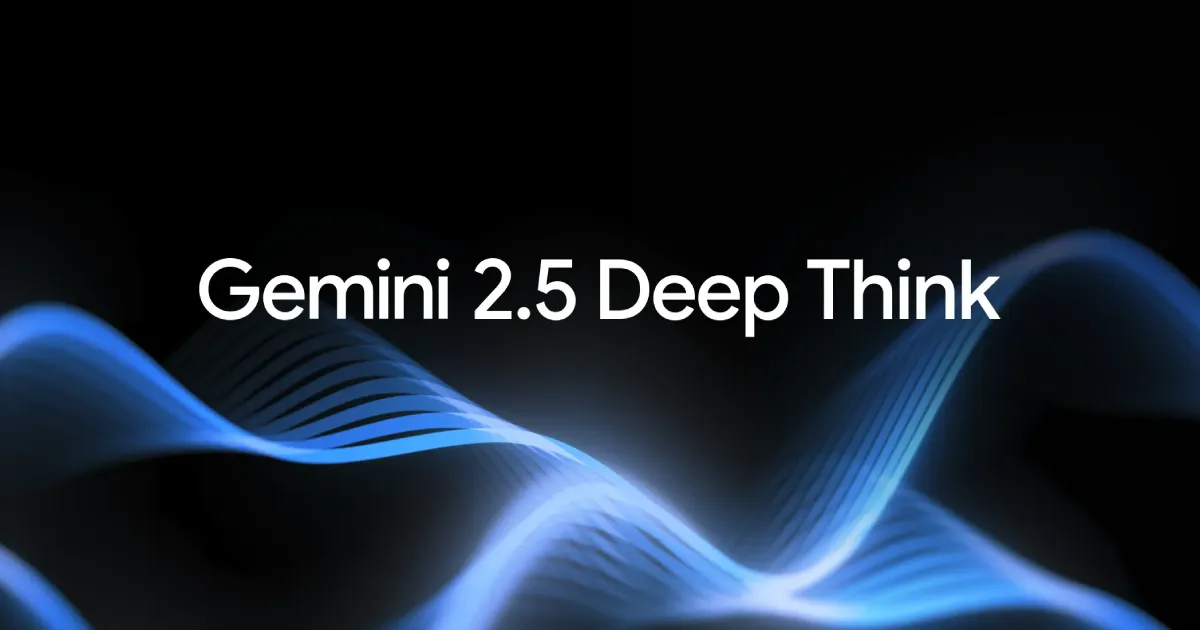Google launches Gemini Deep Think, an AI that reasons in parallel

Google DeepMind has officially begun the rollout of Gemini 2.5 Deep Think, a major leap forward in AI reasoning systems. Described by the company as its most advanced AI yet, Gemini 2.5 Deep Think is designed to tackle complex problems by exploring multiple ideas simultaneously and synthesizing the best possible answer — a capability made possible through its multi-agent architecture.
A Premium Experience for a Premium Price
Access to Gemini 2.5 Deep Think starts on Friday for subscribers of Google’s Ultra plan, a $250-per-month tier of the Gemini app. The model was first unveiled in May during Google I/O 2025, and it's the first time Google is offering the public a true multi-agent AI system.
Unlike single-agent systems that generate answers linearly, Gemini 2.5 Deep Think spawns several AI “agents” to reason in parallel. While this parallel processing demands significantly more computational resources, the tradeoff is better, more thoughtful answers — especially in tasks requiring creativity, long-term planning, and iterative problem-solving.
Real-World Impact: From Math Olympiads to Scientific Research
A variation of Gemini 2.5 Deep Think helped Google clinch a gold medal at the 2025 International Math Olympiad (IMO) — a striking demonstration of the model’s reasoning power. The IMO-winning version, which Google says can take hours to complete complex reasoning tasks, is being selectively released to academics and mathematicians for research purposes.
This research-focused version is expected to support fields that demand long-term strategic thinking, including theoretical math and scientific discovery. Google is also seeking feedback to refine the system for academic use cases, highlighting the potential for AI to augment — not replace — human expertise.
Benchmark Dominance
Gemini 2.5 Deep Think is already making waves in performance benchmarks:
- Humanity’s Last Exam (HLE): A notoriously difficult test of reasoning across math, humanities, and science. Gemini scored 34.8%, compared to xAI’s Grok 4 at 25.4% and OpenAI’s o3 at 20.3%.
- LiveCodeBench 6: A benchmark for competitive programming and coding tasks. Gemini led with 87.6%, outperforming Grok 4 (79%) and o3 (72%).
These results underscore Gemini 2.5 Deep Think’s strength in both structured problem-solving and open-ended reasoning.
Smarter Tools, Longer Responses
Beyond its core capabilities, Gemini 2.5 Deep Think integrates automatically with tools like Google Search and code execution environments, enabling it to produce more informed and actionable answers. It also generates much longer and more detailed outputs than earlier Gemini versions or competing models.
In tests involving web development and aesthetic design, Google says the model delivered more polished and useful outputs, reinforcing its potential as a creative and technical collaborator.
The Multi-Agent Movement
Google isn’t alone in embracing the multi-agent paradigm. xAI’s Grok 4 Heavy, OpenAI’s unreleased IMO system, and Anthropic’s Research Agent all rely on similar architectures. These models are redefining what AI can do, especially in fields that demand layered thinking and deep reasoning.
However, the computational cost remains high. That’s likely why multi-agent systems remain locked behind premium paywalls — an approach taken by both Google and xAI.
What’s Next?
In the coming weeks, Google plans to release Gemini 2.5 Deep Think through its Gemini API to a select group of testers. The goal is to explore how developers and enterprises might apply this advanced reasoning model across domains, from scientific research to software development.
While still early in its deployment, Gemini 2.5 Deep Think marks a clear shift in AI design — from fast, fluent chatbots to deep thinkers capable of step-by-step reasoning and intellectual problem-solving. Whether the market will bear the high costs of this kind of AI remains to be seen, but for now, Google is betting that the future belongs to those who think deeply — even if they do so with many minds at once.





